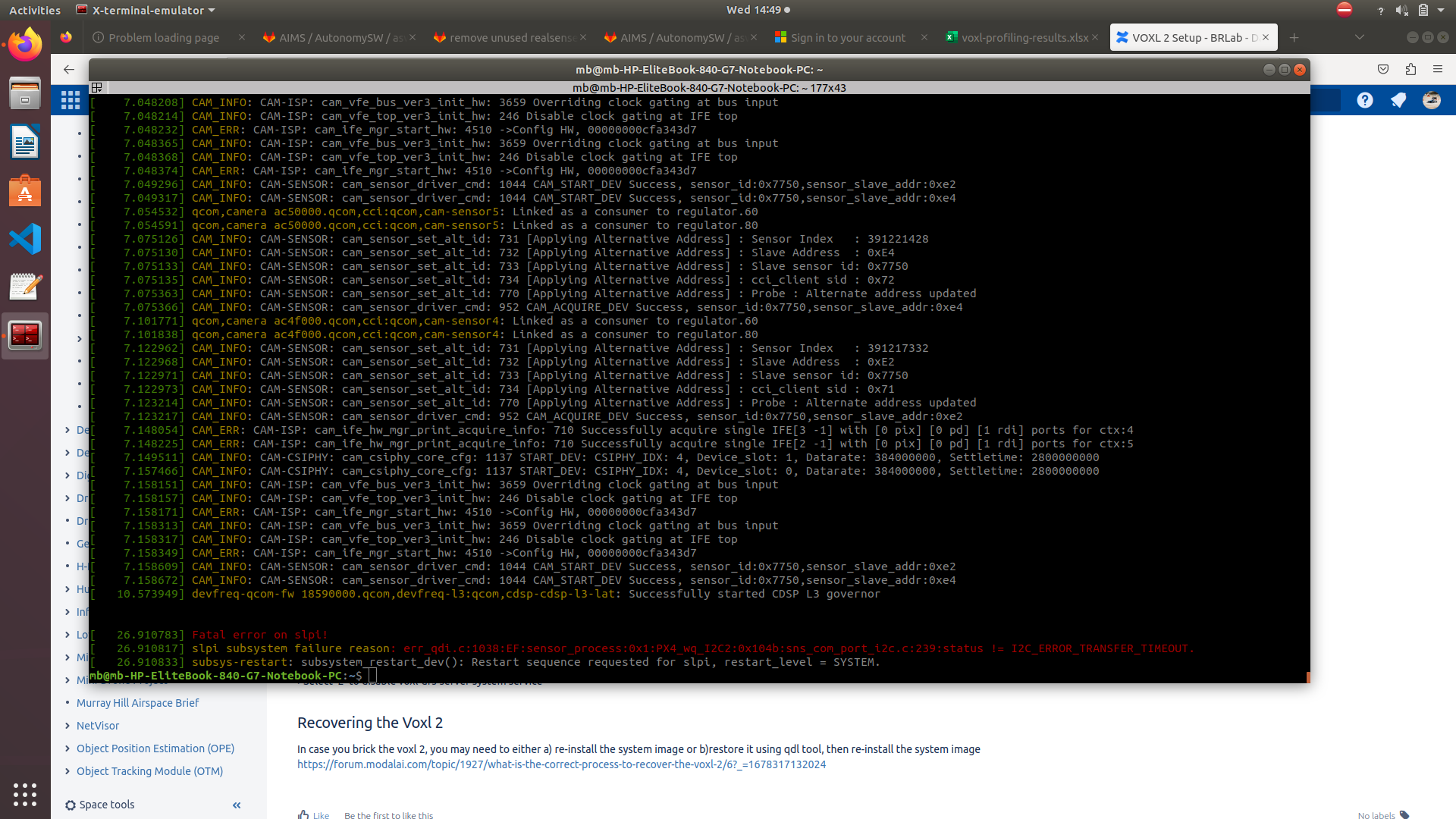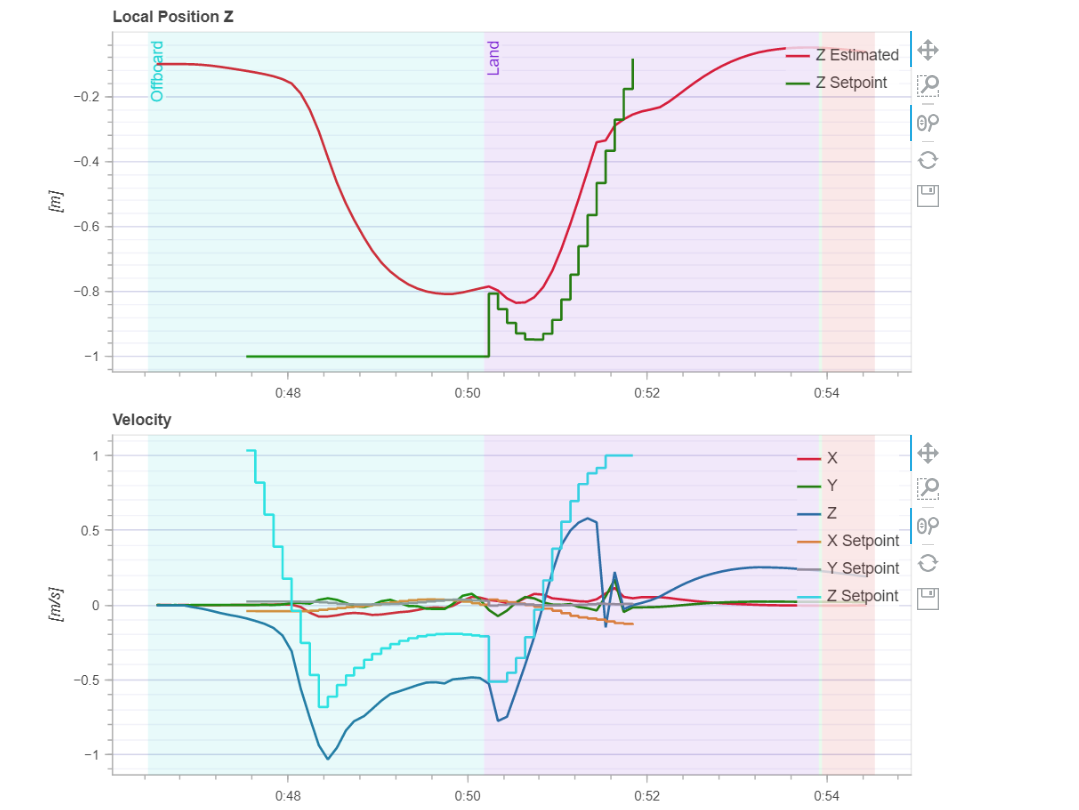We use the snapshot feature of voxl-camera-server to capture images while the drone is flying.
As far as I understood the camera specs are encoded in this file: https://gitlab.com/voxl-public/voxl-sdk/services/voxl-camera-server/-/blob/master/misc_files/usr/share/modalai/voxl-camera-server/camera_config.xml?ref_type=heads
We use IMX412, and it has 2.7mm focal length
But for example, we see the following when analze the exif data from an image (focal length is 2.2mm, fnumber is 2.4 but should be 3.2)
File Type : JPEG
File Type Extension : jpg
MIME Type : image/jpeg
JFIF Version : 1.01
Exif Byte Order : Big-endian (Motorola, MM)
Make : QTI-AA
Camera Model Name : QCAM-AA
Orientation : Horizontal (normal)
X Resolution : 72
Y Resolution : 72
Resolution Unit : inches
Modify Date : 2025:02:18 06:15:38
Y Cb Cr Positioning : Centered
Exposure Time : 1/133
F Number : 2.4
Exposure Program : Manual
ISO : 100
Exif Version : 0220
Date/Time Original : 2025:02:18 06:15:38
Create Date : 2025:02:18 06:15:38
Components Configuration : Y, Cb, Cr, -
Shutter Speed Value : 1/133
Aperture Value : 2.4
Brightness Value : 4.67
Exposure Compensation : 0
Max Aperture Value : 2.4
Metering Mode : Average
Light Source : D65
Flash : Off, Did not fire
Focal Length : 2.2 mm
User Comment :
Sub Sec Time : 407662
Sub Sec Time Original : 407662
Sub Sec Time Digitized : 407662
Flashpix Version : 0100
Color Space : sRGB
Exif Image Width : 4056
Exif Image Height : 3040
Sensing Method : Not defined
Exposure Mode : Manual
White Balance : Manual
Focal Length In 35mm Format : 2 mm
Scene Capture Type : Standard
Interoperability Index : R98 - DCF basic file (sRGB)
Compression : JPEG (old-style)
Thumbnail Offset : 2206
Thumbnail Length : 21199
Image Width : 4056
Image Height : 3040
Encoding Process : Baseline DCT, Huffman coding
Bits Per Sample : 8
Color Components : 3
Y Cb Cr Sub Sampling : YCbCr4:2:0 (2 2)
Aperture : 2.4
Image Size : 4056x3040
Megapixels : 12.3
Scale Factor To 35 mm Equivalent: 0.9
Shutter Speed : 1/133
Create Date : 2025:02:18 06:15:38.407662
Date/Time Original : 2025:02:18 06:15:38.407662
Modify Date : 2025:02:18 06:15:38.407662
Thumbnail Image : (Binary data 21199 bytes, use -b option to extract)
Circle Of Confusion : 0.033 mm
Field Of View : 167.3 deg
Focal Length : 2.2 mm (35 mm equivalent: 2.0 mm)
Hyperfocal Distance : 0.06 m
Light Value : 9.6


